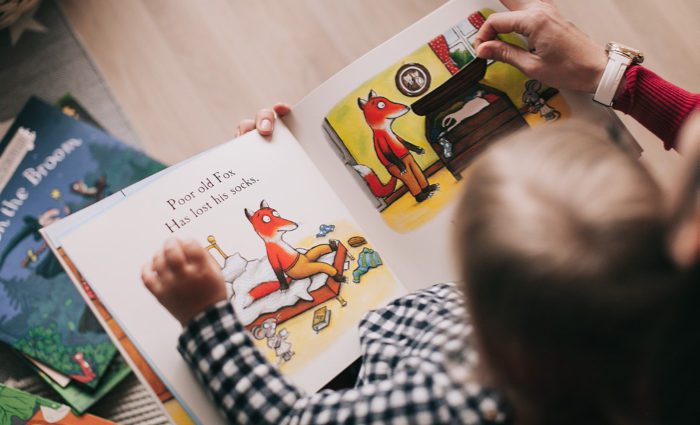by Lauri Ellis
Do you, as a writer, wonder if what you do matters? Are you plagued by writer’s block and physical ailments from sitting staring at that screen or writing pad? Do you wonder if you are wasting your time?
Ah, you’ve joined the writer’s club! In the movie Finding Forrester, Sean Connery simplified the matter of writing and its value in one statement: “Writers write so readers can read!”
Writers Can Impact the Youngest Readers
Remember that some of the first words uttered by the next generation to parents are, “Please read me a story!”
When kids enter the school system and as they progress through college, daily they hear, “Please open your books. . .”
Parents have the best and most important job in the world – to love, nurture, and educate the next generation. Writers and other teachers are our partners. What on Earth could be a more valuable contribution to humanity?
That’s pretty heady stuff! Be proud – no matter what your genre. Just relax and do your thing.
How a Book Led to a Successful Occupation
When my kids were young, we lived on a beautiful hillside in Idaho overlooking the little town of Kamiah. My son’s second-grade teacher was offering prizes to the kids that checked out and read 100 books by the end of the school year. The child’s short book report for each book was to be signed off by a parent.
This was my “wild-child,” so whatever anyone asked of this kid, he didn’t want to do it. But he faced the dilemma of wanting the prize. When I said we best get to it for the next book, I was dismayed when he cheerfully said, “I don’t have to!” as he handed me the paper to sign.
He was ecstatic to have found a book with not one word in it!
I hated to burst his bubble but said, “Well, my son, haven’t you heard that a picture is worth a thousand words? So pick two projects. One for work and one pretty-to-look-at. Then I will help you make them for your wordless book report on the book with no words.”
“Oh, no! Ma!”
The book consisted of simple drawings of carpenter projects for kids. The first he grudgingly picked was a toolbox he painted yellow with a red broomstick handle. The second project was a small knotty cedar angled planter, sanded smooth and shellacked. In it, he placed a potted plant with blooming flowers. The plant with its holder and the new tools I bought him, fit nicely in the toolbox.
It took buckets of tears (some mine), but finally, he marched off to the school bus with the projects and returned without them.
“Where are your projects?” I asked.
Beaming a huge smile, he said, “My teacher asked me if she could put them in the library until the end of the school year, and I said okay.”
Thanks to that book – with no words – he (now a grandpa of two) became an excellent cabinetmaker and carpenter and has made a good living for his family ever since.
Even my oldest son benefited because his teacher saw the library display and asked him if he could build her a large planter, like that little one, for her patio.
“I’ll pay you!” she said.
He did, and he became an excellent industrial “framer” for a large commercial building company for many years. Now he works as a carpenter with his own business.
My youngest son, watching all the goings-on, also became a carpenter.
No matter what or how you write, you impact lives!
Writers Must Not Rely on Amazon Stars for Self-Worth
I know you writers, and other artisans, don’t get the feedback you deserve, but I am here to tell you that you do make a difference and are much appreciated.
Please don’t rely on Amazon’s stars to gauge your self-worth. I once was trying to find a specific book on Microsoft Office 2000, so I read the one-star rating first. It was a scathing review that went something like: “This book is terrible! It’s just like all the others, centered on business. There is just nothing available to teach this software to kids!”
The reviewer was a frustrated middle school teacher, so it had nothing to do with the book or the author but rather the lack of available books for his needs. That one star needlessly made the author feel bad, I’m sure, but it was a colossal heads-up to me as a grandma who did daycare for three of my grandkids.
That review made me keen to think of fun ways to involve computer software in homework projects. It greatly benefited the three kids that were in my care and who are now respectively finishing high school, entering college, and have entered the job market.
Remember that what prompts negative reviews is often not related to you directly, but rather to the needs of the reader.
Also, remember that most appreciative readers (like me) don’t write reviews. ;-/ We feel awkward doing so. We are readers – not writers. Or we get busy and forget to do it.
So please don’t depend on stars on a computer screen to bolster your self-worth. That only leads to unneeded debilitating stress.
Instead, step outside in the evening and look at the bazillions of stars shining down on you. Strive for excellence and what makes you feel good and useful. If you like your work, so will many others, whether they say so or not. Good health to you, and please keep writing.
* * *
 Lauri Ellis: Recently widowed, which ended my care providing obligations, I now look forward to reading many more wonderful books and all the inspiring and interesting posts on Writing and Wellness.
Lauri Ellis: Recently widowed, which ended my care providing obligations, I now look forward to reading many more wonderful books and all the inspiring and interesting posts on Writing and Wellness.


Thanks for this touching look at what makes a writer valuable. I do enjoy earning from articles and book sales but the truth is that creating a work can have a lasting impact even if it doesn’t make money for the author, if it has impacted the audience.